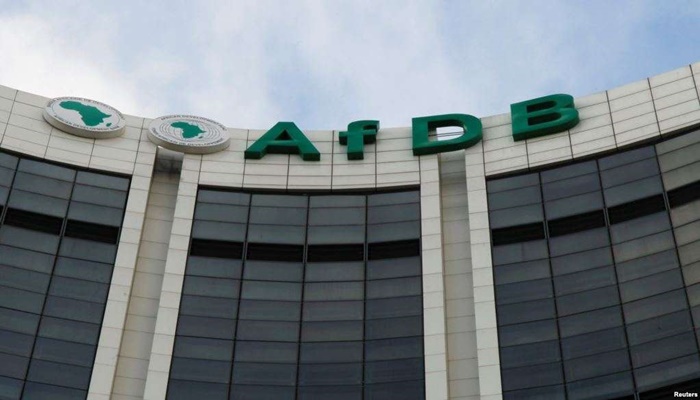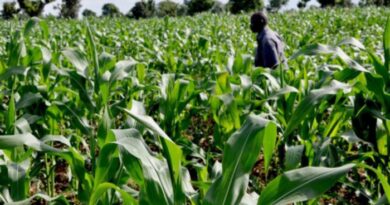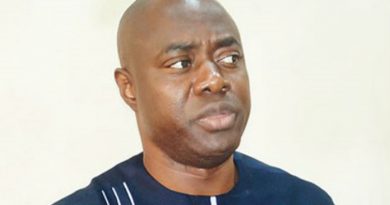AfDB explains why Nigerian, West African economies continue to perform poorly
Nigeria’s economy, just like West Africa’s, has continued to perform poorly due to a myriad of challenges that must be resolved urgently if Africa’s economic growth is to keep pace with the rest of the world.
The president of the African Development Bank (AfDB), Prof. Akinwumi Adesina, said these challenges have continued to weigh down on the economic growth of Africa.
He identified some of these challenges as the dearth of a transformative growth, shocks from reduced commodity prices and tighter global financial conditions exacerbating domestic pressures as a result of policy uncertainties; adverse weather conditions; political and regional security crisis.
Adesina said other challenges include unemployment and under-employment, low domestic revenue mobilization due to weak transparency and accountability, political instability, persistent fragility, growing external debt, and migration.
Adesina was speaking in Abuja at the launch of the bank’s flagship publications – the 2019 African Economic Outlook and the 2019 West Africa Regional Economic Outlook. He was represented by Nigeria Country Director of the Bank, Ebrima Faal.
The AfDB President said these challenges, which must be confronted with ‘fervent vigour’, have continued to make West Africa fall behind other regions in the pecking order of growth in Africa.
He said Africa’s average economic growth was estimated at about 3.5 percent between 2017 and 2018, short of the target 7 percent required to tackle poverty and create productive and sustainable jobs among the youth.
Regardless, he said given the diversity of the continent and regions, economic performance has continued to vary across countries and regions, ranging from -7.9 percent in Equatorial Guinea to 10.9 percent in Libya.
Although a third of the countries in Africa grew by four percent or more, about 15 of the 54 countries posted growth rates of three percent or less, with Nigeria leading the group of net commodity exporters with 1.9 percent.
Regionally, he said East Africa set the pace as the fastest growing in 2018 at 5.7 percent, followed by North Africa at 4.9 percent, with West Africa coming third at 3.3 percent, while Central and Southern Africa coming next at 2.2 and 1.2 percent respectively.
With drivers of economic growth in Africa gradually changing from commodity prices and domestic consumption, Adesina said the contribution of investment to real gross domestic products (GDP) has increased dramatically due to improved infrastructure development.
He said economic performance in West Africa is forecast to improve to an average of about 3.6 percent in 2019 and 2020 based on gradual recovery of commodity prices, especially gold, cocoa, cashew nuts, iron ore and crude oil.
While countries belonging to the West Africa Economic and Monetary Union (WAEMU) continue to enjoy low inflation rates due to pegging their currencies to the Euro, which limits the transmission of global shocks to domestic prices, he non-WAEMU counterpart continue to struggle with macroeconomic instability.
These include high inflation, huge fiscal deficits and rising external debts worsened by unemployment and underemployment.
He acknowledged Nigeria’s continued dominance in the West African region, saying the country’s influence has continued to overshadow other smaller economies in determining the region’s economic performance.
Adesina said Nigeria’s influence in the region was evident during the 2016 economic recession, adding that even with last year’s improved growth rate of 1.9 percent, the impact still masked faster growths in some neigbhouring economies like Cote d”Ivoire (7.4 percent) and Senegal ( 7 percent).
“The good news is that Nigeria has recovered from the last recession. This will have positive spillovers for the region’s growth trajectory over the short to medium term,” he said.
With the successful conduct of the 2019 general elections and the government’s commitment to the implementation of the Nigerian Economic Recovery Growth Plan (NERGP), the ADB President said the future looks bright for the region.
The supervising Minister of Finance, Zainab Ahmed, commended the AfDB for the reports, saying their forward-looking approach has helped put the continent’s current state of economic and social developments into proper perspective and providing the opportunity for assessment of the future direction of African economies.
The Minister who was represented by the Permanent Secretary, Federal Ministry of Finance, Mahmoud Ise-Dutse, said the economic recession in 2016 highlighted the vulnerability of the country’s economy to over-dependence on oil as a major source of revenues and foreign exchange.
She said the problem of commodity price volatility was compounded by incessant attacks on oil facilities which resulted in reduced oil production.
Government’s response to the challenge, the minister said, was the launching of the NERGP to help in restoring economic growth and lay a strong foundation for sustainable growth.
“In line with the NERGP, the Federal Government has placed great emphasis on diversification of the economy to avoid the pitfall of commodity dependence. Apart from the massive support for agricultural transformation, the government has also committed to accelerate the growth of the manufacturing sector, focusing especially on support for small and medium enterprises,” she said.




